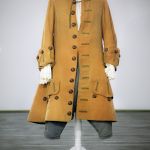
4 – 30 August
Besides the works of Mozart, from the mid-1920s on Richard Strauss’s operas formed a second mainstay of the Salzburg Festival. In 1926, Ariadne auf Naxos was in the repertoire, in 1929 the first Rosenkavalier, which came to be a central work in the Festival programme.
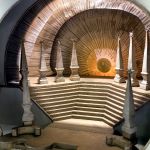
26 July – 30 August
When a music programme was planned for the first time for the newly established Festival in 1922, it was obvious that this should be held with the Vienna Philharmonic Orchestra and the ensemble of the Vienna State Opera.
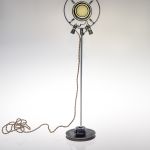
30 July – 28 August
In 1927, improvements were yet again carried out on the Festival Hall, this time the stage area. A proscenium curtain was added, the stage technics refined, the orchestra pit enlarged. The intention was to perform opera in this theatre.
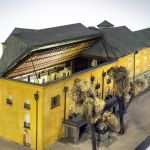
7 – 29 August
After the remodelling of the Festival Hall broke the back of the budget, facing the Salzburg Festival Theatre Association with bankruptcy, Governor Franz Rehrl endeavoured to rescue it. The Festival Hall was taken over into the ownership of the City and was rented out to the Festival Theatre Association.
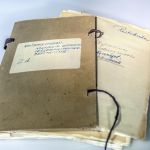
13 – 31 August
In summer 1925, the former riding school complex was used for the first time as provisional festival hall for Hofmannsthal’s mystery play Das Salzburger grosse Welttheater / The Salzburg Great World Theatre directed by Max Reinhardt. Even before it was possible to perform in the impressive Felsenreitschule / Summer Riding School, the large Winter Riding School of 1840 was adapted as a theatre space (later: Small Festival Hall, since 2006: House for Mozart).

Festival not held
Various factors led to a cancellation of the performances of the Marian legend Das Mirakel / The Miracle by Karl Vollmoeller, to be directed by Reinhardt and planned for August 1924 in the Kollegienkirche / Collegiate Church: grave differences between the Salzburg and Vienna branches of the Festival Theatre Association, financial problems and numerous commitments of those in charge of the Festival – for instance, in April of that year, Max Reinhardt had taken over as director of the Theater in der Josefstadt and his troupe was on tour in America. The Festival did not take place.
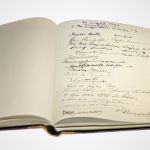
21 – 24 August
In spring 1918, Max Reinhardt had purchased the former family seat of Prince Archbishop Firmian (1727–1744) built around 1740 and with sensitive renovations and remodelling subsequently revived the palace to its earlier brilliance.
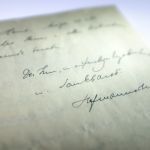
13 – 29 August
On 13 August 1922, Hugo von Hofmannsthal’s Das Salzburger grosse Welttheater directed by Max Reinhardt received its first performance in the Kollegienkirche/Collegiate Church, which meant a further provisional venue was being activated.

2 – 23 August
The plans announced in January 1921 for a four-week festival with two guest performances by the Vienna State Opera and other theatre productions, besides Jedermann, had to be shelved.
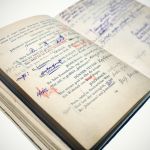
22 – 26 August
The performance of Hugo von Hofmannsthal’s Jedermann directed by Max Reinhardt on 22 August 1920 on Domplatz / Cathedral Square marked the birth of the Salzburg Festival, despite all reservations against the enterprise at a time of hunger and privation.
1920s
The first Salzburg Festival was opened on 22 August 1920 with Hugo von Hofmannsthal’s Jedermann / Everyman directed by Max Reinhardt. It was actually a stopgap solution; the commissioned work originally intended for the première wasn’t completed – nor could enough timber be found to make the stands in the Felsenreitschule / Summer Riding School because of shortage after the war. Hence, Max Reinhardt requested the Salzburg Archbishop Ignatius Rieder if he could produce the ‘Play of the Rich Man’s Death’ in front of the cathedral.
There had already been numerous initiatives previously to establish a festival in Salzburg. They were based on the wish after the upheavals of the First World War to present exceptional artistic achievements as a counter-model to the crisis-ridden time, and this in close association with the cultural tradition of the State of Salzburg, with the genius loci Mozart, and with the unique scenery of the Baroque city. Ultimately, the proponents surrounding the stage director Max Reinhardt and with him the author Hugo von Hofmannsthal, the composer Richard Strauss, the conductor Franz Schalk and the set designer Alfred Roller managed to get their way.
In 1921, concerts were performed for the first time at the Salzburg Festival; in 1922, they were joined by opera: works by Mozart – productions of the Vienna State Opera – were taken over into the programme. In the same year, the permanent residence of the Vienna Philharmonic Orchestra as Festival orchestra began, and the foundation stone for a festival theatre was laid in Hellbrunn after plans by the architect Hans Poelzig, which, however, could not be realized because of money devaluation. Another temporary venue, the Kollegienkirche / Collegiate Church, was activated in 1922 with the world première of Hofmannsthal’s Das Salzburger grosse Welttheater / The Salzburg Great World Theatre directed by Max Reinhardt.
The tense financial situation and the many other commitments of those in charge of the Festival threatened to stop the Salzburg Festival in 1923; finally, in 1924, it had to be cancelled. But already one year later the young institution succeeded in making a new start. The adaptation of the former princely archiepiscopal riding school complex as a festival theatre (1925–1927) established professional production conditions, but almost led to the bankruptcy of the Festival Theatre Association; the latter had been founded in 1917 and was entrusted with the Festival’s organization. A further milestone was the first radio broadcast from the Salzburg Festival in 1925, Mozart’s Don Giovanni. By the late 1920s, the additional option of the open-air riding school (Felsenreitschule / Summer Riding School) as a venue and an extension of the seasonal programme increasingly enhanced the Salzburg Festival’s profile. Because of doubtful financing and the Great Depression looming up in 1929, however, the financial situation of the Festival Theatre Association remained precarious.
